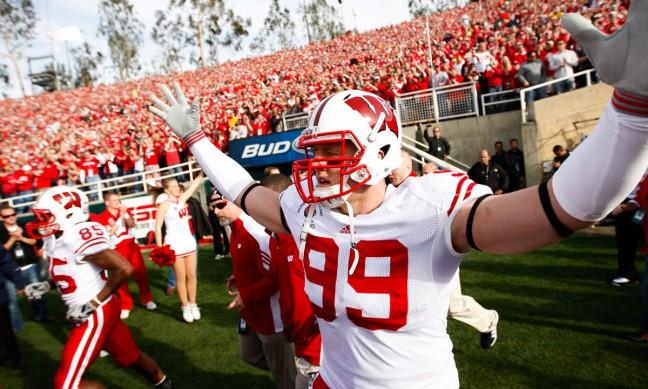Demanding an athlete “stick to sports” during times of political or social turmoil is as ridiculous as demanding a politician “stick to politics” when speaking out on controversial topics. A politician’s job is nuanced and involved in so many aspects of humanity.
They spend each day around new people, ideally learning their stories to become better informed on how to implement effective measures aimed at improving the lives of those they’ve spoken to. As a result, their mental library from which they can reference life experiences as a means to educate and influence others is widened and becomes a valuable tool in their success as a politician.
Athletes play a similar role in today’s media-centric society. The number of people involved in following the lives and personalities of athletes in today’s world has never been higher, and as such, they’ve become popular social influencers. During times of national conflict domestically and internationally, athletes are often seen speaking out to share their perspective and message on issues, albeit to significant backlash.
At last year’s ESPY awards, the annual sports award show, NBA superstars and league leaders Lebron James, Dwyane Wade, Carmelo Anthony and Chris Paul stood in front of a packed Microsoft Theater to issue an unplanned message to the crowd surrounding the country’s mortifying gun violence issues, specifically addressing violence against minority populations.
The statement was not prescreened by the ESPN producers, but left a lasting impact, the message went viral, was featured on countless news programs and social media platforms. The message acted as a call to action for athletes to speak out and take a stand against such despicable events.
Fellow athletes, including league MVP Stephen Curry, immediately showed their support for the message as necessary and crucial to addressing a topic that is far from solved. The call to action was of course criticized as being anti-gun, and ESPN was criticized for being too biased, allegedly lying about their agenda and subsequently discrediting the athlete’s message because of their ties to a greater corporation.
However, as stated previously, these public figures and national role models acted independently and on behalf of only themselves, not as athletes under the jurisdiction of an international corporation, but as athletes with a personal agenda that received overwhelming support from their peers.
During the last decade, the influence of athletes has increased exponentially due to the explosion of media outlets and coverage focused solely on athletics; the accessibility to athletic coverage has never been higher. As such, the onus on athletes to speak out has skyrocketed, as their status has evolved from simple athlete to public figure. People forget that the job of an athlete inherently revolves around people.
Student athletes deserve compensation, but not pulled from the wallets of their classmates
There’s a reason athletes fund and sustain nonprofits, there’s a reason athletes take on administrative roles in their league’s players associations and there’s a reason athletes feel comfortable in making controversial statements: it’s because their lives revolve around meeting and connecting with people of all races, religions, colors, creeds and sexual orientations.
Programs like Basketball Without Borders, a program since 2001, has sent NBA athletes to 25 countries and hosted participants from 134 countries and territories to both connect through basketball and learn about lives different from their own. Organizations like the NFL Player’s Association, which has a former player board of directors, have spearheaded fights in protecting its players from physical harm, specifically associated with long-term cognitive function.
People like Colin Kaepernick, a sterling example of all that is good in an athlete, have gone above and beyond to bring light to the Black Lives Matter movement. By both choosing to kneel during the national anthem, a protest he organized by speaking to numerous veterans in order to protest in the most respectful manner, to pledging a $1 million donation, $700K of which he has reached, to 24 different organizations all aimed at supporting minority populations, Kaepernick has done everything right in a controversial protest, but still remains jobless amidst worries his political affiliations will be a distraction to a team.
These voices matter to the youth of America who hold players in high regard. Silencing their voices by undermining their profession is both detrimental to future generations who won’t get to hear the positive messages athletes have to offer, and grossly misinformed to suggest athletes don’t have the means or life experience to speak out.
What’s funny is that when an athlete donates money, there’s no mention of them sticking to sports, rather they’re praised outright for their generosity. Look no further than real-life saint and University of Wisconsin alum J.J. Watt. That praise is not misguided, but shouldn’t be the only time athletes are recognized for making change.
The main question to consider is this: when will people realize that athletes do so much more in their lives than play a game? Once that question is properly addressed and analyzed, the “stick to sports” argument should find it’s rightful place in silence.
Lucas Johnson ([email protected]) is a sophomore majoring in journalism.





















